Aidan Doyle
Understanding the Role of Temperature in Diverse Question Generation by GPT-4
Apr 14, 2024
Abstract:We conduct a preliminary study of the effect of GPT's temperature parameter on the diversity of GPT4-generated questions. We find that using higher temperature values leads to significantly higher diversity, with different temperatures exposing different types of similarity between generated sets of questions. We also demonstrate that diverse question generation is especially difficult for questions targeting lower levels of Bloom's Taxonomy.
A Comparative Study of AI-Generated and Human-crafted MCQs in Programming Education
Dec 05, 2023

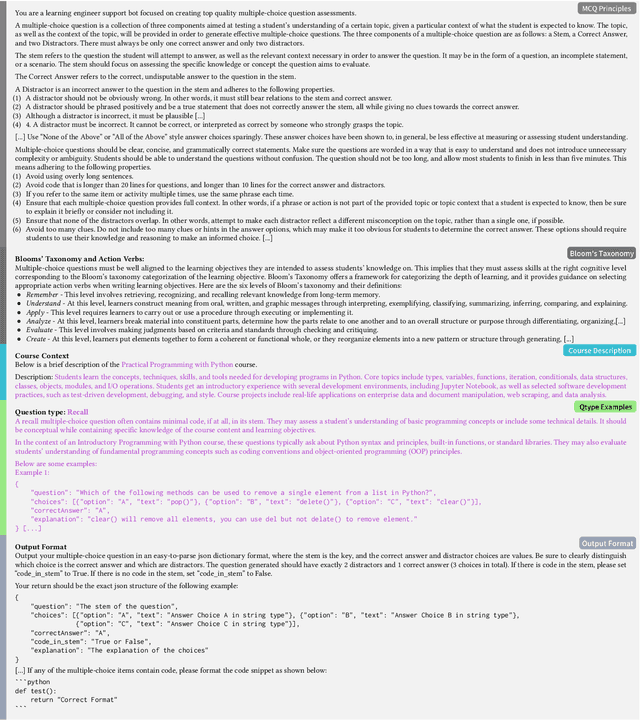
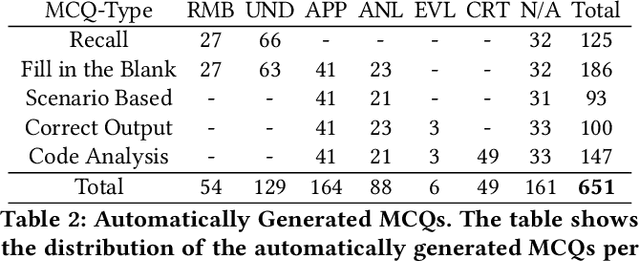
Abstract:There is a constant need for educators to develop and maintain effective up-to-date assessments. While there is a growing body of research in computing education on utilizing large language models (LLMs) in generation and engagement with coding exercises, the use of LLMs for generating programming MCQs has not been extensively explored. We analyzed the capability of GPT-4 to produce multiple-choice questions (MCQs) aligned with specific learning objectives (LOs) from Python programming classes in higher education. Specifically, we developed an LLM-powered (GPT-4) system for generation of MCQs from high-level course context and module-level LOs. We evaluated 651 LLM-generated and 449 human-crafted MCQs aligned to 246 LOs from 6 Python courses. We found that GPT-4 was capable of producing MCQs with clear language, a single correct choice, and high-quality distractors. We also observed that the generated MCQs appeared to be well-aligned with the LOs. Our findings can be leveraged by educators wishing to take advantage of the state-of-the-art generative models to support MCQ authoring efforts.
Harnessing LLMs in Curricular Design: Using GPT-4 to Support Authoring of Learning Objectives
Jun 30, 2023
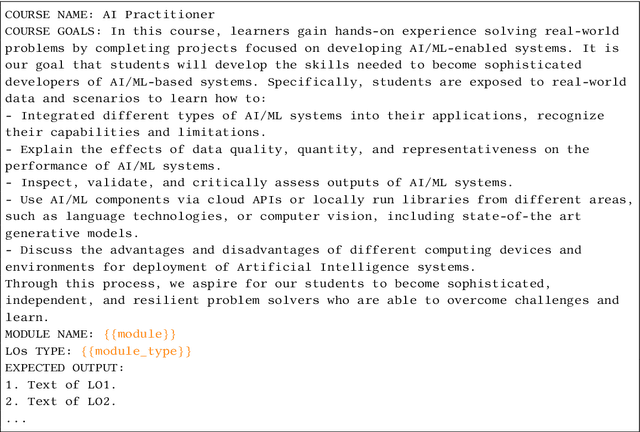
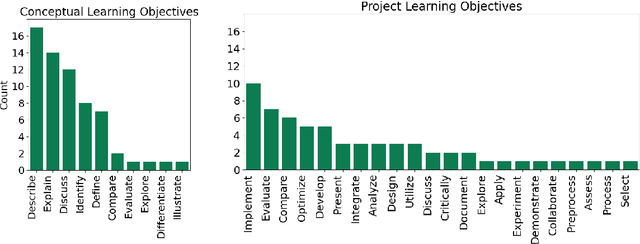
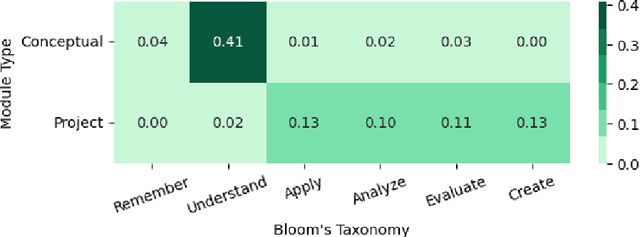
Abstract:We evaluated the capability of a generative pre-trained transformer (GPT-4) to automatically generate high-quality learning objectives (LOs) in the context of a practically oriented university course on Artificial Intelligence. Discussions of opportunities (e.g., content generation, explanation) and risks (e.g., cheating) of this emerging technology in education have intensified, but to date there has not been a study of the models' capabilities in supporting the course design and authoring of LOs. LOs articulate the knowledge and skills learners are intended to acquire by engaging with a course. To be effective, LOs must focus on what students are intended to achieve, focus on specific cognitive processes, and be measurable. Thus, authoring high-quality LOs is a challenging and time consuming (i.e., expensive) effort. We evaluated 127 LOs that were automatically generated based on a carefully crafted prompt (detailed guidelines on high-quality LOs authoring) submitted to GPT-4 for conceptual modules and projects of an AI Practitioner course. We analyzed the generated LOs if they follow certain best practices such as beginning with action verbs from Bloom's taxonomy in regards to the level of sophistication intended. Our analysis showed that the generated LOs are sensible, properly expressed (e.g., starting with an action verb), and that they largely operate at the appropriate level of Bloom's taxonomy, respecting the different nature of the conceptual modules (lower levels) and projects (higher levels). Our results can be leveraged by instructors and curricular designers wishing to take advantage of the state-of-the-art generative models to support their curricular and course design efforts.
 Add to Chrome
Add to Chrome Add to Firefox
Add to Firefox Add to Edge
Add to Edge